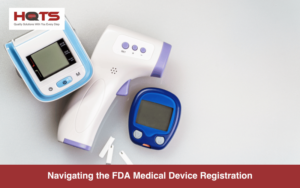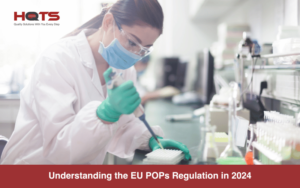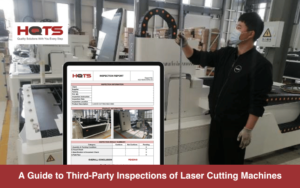Food safety is vital whether you are a grower, packer, processor, distributor or buyer of bulk feed, supplements or products for human consumption. You must demonstrate integrity and ensure safety of from the source which can be done with a food audit.
Food safety encompasses all the routines in the preparation, handling and storage of food which are necessary to prevent foodborne illnesses. A number of routines should be followed to avoid potentially severe health hazards. Food safety considerations include practices relating to food labelling, hygiene, additives and pesticide residues. From bulk feed, to packaged food items destined for human consumption all technical and regulatory expertise on food safety is a must.
What is food auditing?
Food safety and quality audits are practised widely in the food industry for various reasons. Currently, the increased interest of consumers on food safety and food quality is due, in part, to recent food safety and quality standards. Food safety and quality work on the British Retail Consortium (BRC) Global Standards first began in 1996.
The development of the standard aimed at assisting retailers to ensure they fulfil their legal obligations to protect the health of consumers. Retailers are legally obliged to take all reasonable precautions and exercise all due diligence to avoid failures. Food safety audits are centred around defined requirements set out in food safety standards, legislation, and internal standards of operation.
Technology plays an important role in food safety audits and maintaining the necessary food safety checklists and quality insurance documents requires a large amount of data. Food safety audits are usually conducted by planning, execution, corrective and preventive action, verification and audit evaluation.
What are the different types of food audits?
Food health and safety is vital, but you should also be aware of the food quality. Restaurants and food manufacturers should use auditing to help gauge the quality of the food and make any necessary corrections before your customers are affected.
There are many different types of quality audits available including;
Formulation audits
This audit ensures that the ingredients in the food are being measured and included in the correct amounts and in the right order. For example, adding too much salt to a sweet item can ruin the taste and texture. Therefore, formulation checks will check each ingredient of the recipe.
Size audits
Portion sizes are important to help with consistency, ensuring the correct portions can help your company control profits. Because, if you are making the portions too large, you could be losing money or wasting too much food. Establishing mandatory weight requirements before the food goes out will help to ensure your portion sizes are all correct.
Temperature audits
Hot food is defined as above 135 degrees needs to stay hot, whereas cold food below 41 degrees, needs to stay cold. Temperature charts throughout each stage of food production can help to ensure the food is being kept at the correct temperatures.
Packaging audits
Packaging procedures can help you to avoid wasting products such as plastic and cardboard. Ensuring proper sealing and containment will help your products to stay fresh and ensure your customers receive top-quality items. This should be the final audit that takes place before the products are shipped out.
Machine calibration audits
Over a period of time, the equipment you use may start to slow down and therefore, you should regularly check the equipment you use to ensure it’s working as intended and if it isn’t, to make sure you correct its functionality. These audits can be performed once a week or even once a month, depending on the machines you use.
GHP compliance in the food industry
It’s vital to promote good hygiene management within your food supply chain and this can be achieved through auditing. Perfect sanitary and food handling measures should already be in place, but these measures can always be improved across your production line.
Good Hygiene Practices (GHP) highlights any areas of concern and potential pitfalls to improve your food safety standards. Audits check your facilities, equipment and workspaces to identify what improvements need to be implemented and to highlight any potential risks. It will then assess and ensure that the food being processed is suitable for human consumption and meets the minimum standards, at least, needed to comply with regulations in the industry.
GMP compliance in the food industry
God Manufacturing Practices (GMP) are the basic conditions that are required to produce and process safe foods. Ingredients, products and also GMP food packaging has to be handled safely and in a suitable environment. GMP Compliance ensures your premises, procedures and sanitization are top-quality and you have a suitable storage and waste management system in place. GMP covers water safety monitoring procedures, equipment maintenance and packaging labelling.
How to prepare for a food safety audit
Audits are largely based on the ability to provide the auditor with evidence that operations are compliant with the correct standards. Preparing for your audit will ensure a more comfortable and compliant visit.
Firstly, never forget about the ‘small things’ – not addressing the obvious issues can show a lack of training and commitment. Ensuring that the conditions throughout the facility are tidy and things are labelled correctly. There should always be space between the wall and stored materials for pest control and cleaning to take place. Your internal audit should take place at least two months before as a minimum.
About HQTS
Using a third-party inspection company can be very beneficial and HQTS can provide a range of audits including retail hygiene, cold chain management, hazard analysis critical control point and manufacturing process supervision. With over 25 years of experience in quality assurance, HQTS is ready to help your online business build a robust quality assurance process. Our many service locations are prepared to be your one-stop-shop for your e-commerce inspection needs, Including, production monitoring, pre-shipment and sorting inspections and everything in between. Click here to read more about our food safety audits. Contact us today to find out how we can help you navigate food quality control challenges.
Related:
Food Safety Audits: What Are GHP and GMP in the Food Industry?
HQTS Webinar – The New Global Food Supply Chain: Smart Technologies & Food Safety Post-Covid-19
Sources:
https://onlinelibrary.wiley.com/doi/full/10.1111/1541-4337.12293
justfooderp.com/blog/5-quality-audits-every-food-company-should-be-doing





